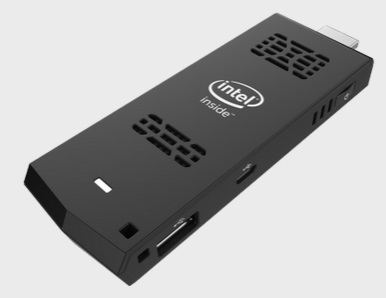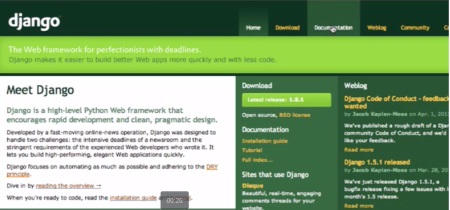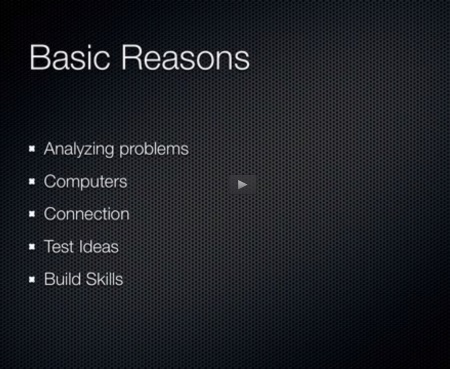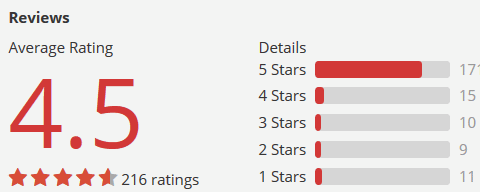Weekly tech bulletin for week ending 2015-04-12. YouTube subscription and more.
Published: Mon, 13 Apr 2015 by Rad
.
Weekly news in technology sector, security threats, law and legal related to IT, big tech companies, tech stocks, programming languages and more. This week US can download your whole laptop on border crossing, US Government stops Xeon chips sales, YouTube plans subscription, White House sensitive data stolen by hackers, new Ubuntu phone finally on sale, cooling industry has exciting new material, CoreOS launches container management via Google's Kubernets, Intel Compute Stick1 sales for $110, 72% of Britons has data protection concerns. Plus few events, conferences to note in your calendar for next 30 days.
1. The US Government can download the entire contents of your computer at border crossings
Published: April 08, 2015 privacy Hundreds of thousands of travelers cross US borders every day. And none of them-save the precious few with diplomatic immunity-have any right to privacy, according to Department of Homeland Security documents recently obtained by MuckRock."What becomes clear is that this authority has been broadly interpreted to mean that any device brought into or out of the country is subject to the highest level of scrutiny, even when there is no explicit probable cause."
http://motherboard.vice.com
The US Department of Homeland Security's (DHS) Privacy Impact Assessment for the Border Searches of Electronic Devices outlines the finer points of border officials' authority to search the electronic devices of citizens and non-citizens alike crossing the US border. What becomes clear is that this authority has been broadly interpreted to mean that any device brought into or out of the country is subject to the highest level of scrutiny, even when there is no explicit probable cause.
Based upon little more than the opinion of a single US Customs and Border Patrol (CBP) officer, any device can be searched and its contents read. With approval from a supervisor, the device can be seized, its contents copied in full, or both.
Source: http://motherboard.vice.comSpecial offer for readers
Big Icon Set. Limited offer!
Limited offer! Please note that this offer will expire on Fri, April 24.
2. US nuclear fears block Intel China supercomputer update. US stops Intel Xeon chips sale to China.
Published: April 10, 2015 legal
The US government has refused to let Intel help China update the world's biggest supercomputer. Intel applied for a licence to export tens of thousands of chips to update the Tianhe-2 computer.
The Department of Commerce refused**, saying it was concerned about nuclear** research being done with the machine.
"Separately, Intel has signed a $200m (£136m) deal with the US government to build a massive supercomputer at one of its national laboratories."
bbc.co.uk
In a notice published online the US Department of Commerce said it refused Intel's application to export the chips for Tianhe-2 and three other Chinese supercomputers because the machines were being used for "nuclear explosive activities". The relevant section of US export regulations reveals that this covers technologies used in the "design, development or fabrication" of nuclear weapons.
Tianhe-2 or TH-2 (loosely translated as "Milky Way 2") is a 33.86-petaflops supercomputer located in Sun Yat-sen University, Guangzhou, China. It was developed by a team of 1,300 scientists and engineers.
It is the world's fastest supercomputer according to the TOP500 lists for June 2013, November 2013, June 2014 and November 2014. Estimated building cost: US $390 million).
Source: bbc.co.uk
3. YouTube planning subscription service for ad-free videos
Published: April 09, 2015 tech
According to an e-mail sent to YouTube content creators, the video platform is looking to launch a subscription-based service that will permit viewers to bypass pre-roll ads on videos. It's unclear how much the subscription will cost per month, but Bloomberg reports that revenue from the feature will be shared with content creators as a supplement to advertising revenue from viewers who choose not to pay for the subscription service.
Launches As early as this year
An anonymous source told Bloomberg that the service could launch as early as this year.
YouTube has been trying to compete with video subscription services like Hulu and Netflix and with music subscription services like Spotify and Rdio for a long time. In 2013, the company gave channels the option to monetize by locking content and offering it in exchange for a monthly subscription. Last November, YouTube launched Music Key, a music subscription service that gave customers access to 30 million songs in Google's Play Music database for $9.99 a month.
Source: www.arstechnica.com
4. Hackers who breached White House network allegedly accessed sensitive data
Published: April 07, 2015 security
Russian-government hackers who reportedly breached the White House's computer systems late last year gained access to sensitive information, though US officials said at the time that they hadn't, according to a story published Tuesday by CNN.
"Hackers who broke in to both the White House's and State Department's networks last year were able to gain nonpublic details of the president's schedule, says a report."
cnet.com
Non public details of president schedule accessed
Officials had previously said the White House breach, in October, had affected only an unclassified network, but sources told CNN that hackers were able to gain access to real-time nonpublic details of the president's schedule. Sources told CNN that the hackers are believed to be the same ones behind a damaging cyberattack on the US Department of State around the same time last year, which forced the department to shut down its email system for an extended period.
Attacks described as the most sophisticated cyberattack
The FBI, Secret Service and US intelligence agencies are all investigating the security breaches, which CNN's sources say were the result of one of the most sophisticated cyberattacks ever directed at US government agencies.
Tuesday's report emerges amid an uptick in hacker thefts of private data concerning governments, corporations and individuals - from sensitive emails to medical records to financial information. Possession of such data could be very valuable, whether it's to enable criminal acts or assist in government espionage.
Despite efforts by the State Department to shore up its security, hackers have been able to reenter the system, resulting in the network being "owned" for months by Russian hackers, sources told CNN.
Source: www.cnet.com
5. Ubuntu Phone AQUARIS E4.5 now sells in Europe for cool 170 EUR.
Published: April 10, 2015 mobile
The first Ubuntu phone is finally here. The Aquaris E4.5, previously only an Android 4.4 phone, now also has a "Ubuntu Edition." The phone is available only in the European Union from BQ's website right now for 170 euro (£122, $179).
Because it started so late in the mobile market, Ubuntu for mobile devices has seen slow adoption among OEMs to use it. Even Firefox OS seems to have had more success than Ubuntu so far, having appeared on several handsets already.
No strings attached, 2 micro SIM slots built in
Phone is sold without any subscription plan, so you are not locked into long contract.
The Aquaris E4.5 comes with a 4.5" IPS screen, as the name implies, with Dragontail protective glass, which is a competitor to Gorilla Glass. The display has a qHD 960 x 540 resolution, which means it has a 240 PPI density - not quite "Retina" quality, but adequate for a mobile device of this size and price.
Phone specs
The phone has a quad-core Mediatek SoC inside with its **Cortex-A7 CPU cores clocked at 1.3 GHz, as well as a Mali-400 GPU**.
One of the main features of Ubuntu for phones is that it has a different "scope" for each category of content. Owners of Ubuntu devices such as the Aquaris E4.5 can access the default scopes that include Music, Video, Photos, "Nearby" and Apps. They can also create new scopes from scratch with the apps or the type of content they want.
- Slots for two micro-SIM cards so you can use your phone on more than one network
- Dragontrail glass for scratch and impact resistance
- 8 megapixel camera with autofocus and dual flash
- Full HD (1080p) camera for super-sharp video recording
- 8 GB internal memory with MicroSD slot for extra storage (up to 32GB)
- weighs just 123g

Source: www.bq.com
6. New material set to change cooling industry
Published: April 11, 2015 tech
Refrigeration and air conditioning may become more efficient and environmentally friendly thanks to the patent-pending work of LSU physicists. The team of researchers led by LSU Physics Professor Shane Stadler has discovered a breakthrough magnetocaloric material that may change the energy industry, including air conditioning and food refrigeration.
"The world refrigeration market is expected to increase by about $7-8 billion by 2018," Stadler said. Therefore, his breakthrough has a significant economic impact as well as an impact on the energy industry and environment.
phys.org
In this new technology, a magnetic field magnetically orders the material at ambient temperature, which raises its temperature above ambient. The excess heat is removed through a thermal medium, such as water or air, bringing the material back to ambient temperature.
The magnetic field is then removed, the material becomes magnetically disordered and its temperature drops below ambient temperature leading to a cooling effect. This "solid state" cooling process is significantly more energy efficient than the conventional, compressed gas systems currently on the market today.
The Department of Energy, General Electric and other companies around the world have been working with magnetocaloric materials for some time. Dr. Stadler's solution addresses many of the issues that these big players have encountered.
Currently, a local group of entrepreneurs have expressed interest in this advanced technology. After further testing, they will look into developing commercialization opportunities utilizing it for the heating and cooling industry.
Source: http://phys.org
7. Insecure wearables: Kaspersky Lab researcher discovers security issue in his fitness wristband
Published: April 07, 2015 wearables, security
Fitness trackers of all kinds have become extremely popular, helping people to manage their physical activity and calorie intake and stay in shape. However, such devices also process important personal data about their owners and it is important keep it secure.
Kaspersky Lab researcher Roman Unuchek has examined how a number of fitness wristbands interact with a smartphone and discovered some surprising results.
Connect and download data invisibly
The authentication method implemented in several popular smart wristbands allows a third-party to connect invisibly to the device, execute commands, and - in some cases - extract data held on the device. However, such data was limited to some extend.
However, in the future, when next-generation fitness bands capable of collecting a greater volume of more varied data appear on the market, the risk of sensitive medical data about the owner leaking out could raise significantly.
The rogue connection is made possible because of the way in which the wristband is paired with a smartphone. According to the research, an Android-based device running Android 4.3 or higher, with a special unauthorised app installed can pair with wristbands from certain vendors.
To establish a connection users need to confirm the pairing by pressing a button on their wristband. Attackers can easily overcome this, because most modern fitness wristbands have no screen.
Source: www.infosecdailynews.com
8. CoreOS launches container management on Google's Kubernetes project
Published: April 06, 2015 tech
"CoreOS is founder of the Rocket container project, but the system promises to manage Docker and Rocket formats."
www.informationweek.com
Companies can use Tectonic to manage containers based on CoreOS's own Rocket format, and those based on the more commonly used Docker container format. CoreOS plans to start selling subscription support for Tectonic later this year.
CoreOS CEO Alex Polvi added some spice to an otherwise routine product announcement by throwing out the tidbit that Google Ventures has taken a stake in the company, accounting for $10 million of the additional $12 million that CoreOS received at the end of March.
Source: www.informationweek.com
9. Intel Compute Stick, world's smallest PC, will cost $150 with Windows, $110 with Linux
Published: April 06, 2015 tech
It look a little longer than expected, but Intel's Compute Stick PC is up for pre-order through some online stores.
The stick-sized computer is available from Newegg with Windows 8.1 on board. If you're the type that always spells "Microsoft" with a dollar sign, Newegg is also selling the Linux version for $110. Liliputing reports that it comes with Ubuntu 14.04. The price for the Linux Compute Stick was supposed to be $89, but we've yet to see it anywhere for that cheap.
Regardless of operating system, the Compute Stick comes with an Intel Atom quad-core processor, 2GB of RAM, 32GB of storage and 802.11b/g/n Wi-Fi. It plugs directly into a monitor or TV via HDMI, and is powered through a Micro USB jack on the side of the stick. There's also a full-sized USB port, and Bluetooth 4.0 for connecting a mouse and keyboard.
Tech specs - comparable to a mid-range tablet

Specs are comparable to a mid-range tablet, with a quad-core Intel Z3735F Bay Trail processor and integrated graphics.
- Intel Atom quad-core processor
- 2GB (1GB) of RAM
- 32GB of storage
- 802.11b/g/n Wi-Fi
- connects to monitor or TV via HDMI
- powered through a Micro USB jack
- Bluetooth 4.0
- full sized USB port
- 4 inches (10cm) long
It's everything you love about your desktop
The Intel Compute Stick1 is a new generation compute-on-a-stick device that's ready-to-go out-of-the-box and offers the performance, quality, and value you expect from Intel. Pre-installed with Windows 8.1 or Linux, get a complete experience on an ultra-small, power-efficient device that is just four inches long, yet packs the power and reliability of a quad-core Intel® Atom™ processor, with built-in wireless connectivity, on-board storage, and a micro SD card slot for additional storage.
It's everything you love about your desktop computer in a device that fits in the palm of your hand.
Source: www.pcworld.com
10. Data protection concerns 72% of Britons in post-Snowden world, research shows
Published: April 09, 2015 security, research NSA revelations, hacks and identity theft have left seven in 10 people in the UK concerned about their privacy, and a third willing to pay to protect information."High-profile data breaches, including celebrities' nude photographs being pasted over the internet, credit card details being hacked and governments gaining permission to access Google and Microsoft customer data is forcing consumers to take more control of their privacy."
www.theguardian.com
The research, conducted by YouGov, surveyed more than 2,000 British adults and found that 32% of respondents would be willing to pay to protect their information online. In a significant change in consumer behaviour, 29% felt it was their own responsibility to protect their data.
Despite being worried about their private information, more than half of those surveyed said they did not want to pay for online protection, and 61% said the organisation responsible for the application or website should be protecting their information.
Source: www.theguardian.comSpecial offer for readers
Coding for Entrepreneurs
35 hours of video! Suitable for all levels, lifetime access.
Events - selected events in next 30 days
International Conference on Internet, Wireless Networks and Communication Technology
Place: Park Inn Hotel Prague, Svobodova 1 - 128 00 - Prague, Czech Republic
Date: Apr 28 - 29, 2015 URL: ICIWNCT
The primary goal of the conference is to provide researchers, practitioners, and students with the platform to share leading-edge knowledge and ideas in Internet Computing and related areas. Submitted papers will be subject to a double-blind review process.
The ICIWNCT 2015 are to bridge the knowledge gap between academia and industry, promote research esteem in secured Internet transactions and the importance of information technology evolution to secured transactions.
Topics and Agenda
- Cloud Computing ()
- Network Application and Security
- Software Engineering and Internet
- E-Commerce and M-Commerce
- Internet Technology and Applications
- and more ...
World of Cloud conference
Place: Sheraton Frankfurt Airport Hotel, Frankfurt, Germany
Date: Apr 27 - 28, 2015 URL: World of Cloud
Hear from high-level decision-makers, how the role of IT must change to meet both the needs of the entire company as well as the needs of the specialist departments.
Recent studies confirm the rapid transformation of IT: 40% of companies in Germany use cloud computing, 24% of the IT budget is on average spent on private cloud solutions, 83% of the private cloud users and 67% of the public cloud users have had positive experiences with the cloud.
Agenda
- Cloud Governance
- Collaboration
- Digitalisation
- DevOps & Cloud Computing
- Open Stack
- From Big Data to Smart Data
- and more ...
Future of Web Design conference
Place: ETC Venues, London
Date: April 27 - 29, 2015 URL: Future of Web Design - Lodon
Agenda
- Workshop: Interface Animation for the Web - Val Head
- Workshop: Humanising the E-Commerce Experience - Rob Smith and Chris Jones
- Workshop: Responsive Content Modeling - Steve Fisher
- Workshop: Supercharge Your Front-End Workflow - Jason Lengstorf
- Keynote: The Art of Deception - Stephen Hay
- Design Like You Give a Damn: Creating Accessible Interfaces that Everyone Wants to Use - Léonie Watson
- Data Visualisation: The Good, the Bad and the Ugly - Lisa Gringl
- The Future Of Responsive Design Standards - Den Odell
- and more ...
openSUSE Conference
Place:Westvliet Sport Center, Westvliet 55, Den Haag, Netherlands
Free: Going to osc15 is free of charge Date: May 1 - 4, 2015 URL: osc15
The openSUSE Conference 2015 will bring together a wide variety of Free & Open Source contributors to collaborate on one of the major Linux distribution projects.
Agenda
- Secure Deployment Changes Coming in MySQL 5.7
- Optimizing Linux Servers - what has been changed from last year?
- Testing Fedora in openQA
- Pacemakers, Death by Storage, and Shooting Servers in the Head
- Build your own Cloud
- Taming Tigers with Puppet
- Distributed storage Ceph
- and more ...
<< Back Back to list of weekly bulletins
Our previous bulletins stories
- Weekly tech bulletin for week ending 2015-04-05
- Weekly tech bulletin for week ending 2015-03-29
- Weekly tech bulletin for week ending 2015-03-22





